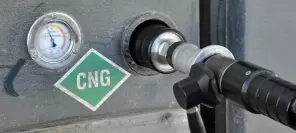- Main page
- Search
- Up to date
- Products
- Technology
- Vehicles
- Video
- Conversion Payback Simulator
Port Injection - Conversion Payback Simulator
Direct Injection - Conversion Payback Simulator
Diesel - Newsletter
NGVs catching on in Israel
 loading results...
loading results...Israel isn't a particularly big country and so the prospective fleet of NGVs will probably never be as impressive as those in Pakistan, Iran, India or Ukraine, but with 820 thousand passenger cars and 12000 buses on the roads today, there is ample material for future conversions. It has been estimated that one third of all the private cars and as much as two thirds of the buses could end up being powered with CNG instead of oil-based fuels by the year 2040.
Although there are no NGVs in Israel right now, policy makers are already working on creating the right conditions for the future market to blossom easily. Considered options include financial incentives, mandates, demonstration programs, developing standards and funding of R&D. On the other hand, local specifics must be taken into account, and these are, among others, Israel's being in an earthquake zone or certain security challenges resulting from the country's geopolitical status.
In order to speed things up, a meeting for policy makers and worldwide specialists from the NGV field titled Clean Cities Transportation: A Workshop for Israeli Policymakers on the Proper Use of Compressed Natural Gas (CNG) in the Transportation Sector was held in September 2015. It served to encourage discussions concerning infrastructure, transport, environmental impact, etc. There's much work to do for this "CNG desert" to ever blossom, but with enough effort the vision may – and probably will – one day become reality.






